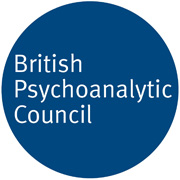How effective is psychoanalytic psychotherapy?
Evidence from the Tavistock and Portman NHS trust shows that psychoanalytic psychotherapy is effective in the treatment of both mild and complex mental health problems. Studies also show that psychotherapy in addition to antidepressant medication significantly reduces depressive symptoms, compared to antidepressants alone.
One of the regulatory bodies for psychoanalytic psychotherapists, the British Psychoanalytic Council, has summarised some of the key findings from the research.
“Psychoanalytic psychotherapy gives impressive results, which even improve at long-term follow up, suggesting that patients who receive psychoanalytic psychotherapy continue to benefit long after therapy has ended.”
Their website includes links to more of the research.
What will the sessions be like?
The meetings may feel different to anything you have previously experienced. The psychotherapist will not ask a lot of questions, but will wait for you to speak; this is because they are interested in what is on your mind. You might find yourself crying, getting upset or angry in therapy or between your sessions.
This can feel unsettling and intense. The analytical therapist will also be interested in the way you are relating to them, and how that links with other, possibly problematic relationships in your life. As the therapist listens to you, they will try to point out particular difficulties in talking or thinking about certain things. Talking and thinking about emotional problems can be difficult. For this reason some people can feel worse before they feel better. Although we know that it’s helpful to talk, we also know it’s not always easy.
Sessions last 50 minutes. Psychoanalytic psychotherapists have couches in their rooms so that, if you choose to, you can lie down during the sessions. This might help you feel more able to open up about how you feel.


